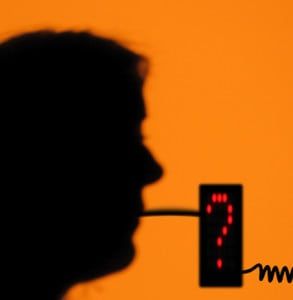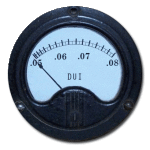 Police and courts use blood alcohol concentration (BAC) as a measurement of intoxication. Most drivers know the .08 limit, which is legal standard for intoxication in Arizona and every other state. This is the per se limit, meaning that if a person registers a BAC of .08, they are intoxicated per se – even if they speak clearly and do not otherwise show signs of intoxication. An .08 reading means they are out of luck.
Police and courts use blood alcohol concentration (BAC) as a measurement of intoxication. Most drivers know the .08 limit, which is legal standard for intoxication in Arizona and every other state. This is the per se limit, meaning that if a person registers a BAC of .08, they are intoxicated per se – even if they speak clearly and do not otherwise show signs of intoxication. An .08 reading means they are out of luck.
But some Arizona drivers think that if they keep their BAC under .08, they will be okay no matter what. The fact is that even with a BAC of less than .08 you can still be convicted of DUI in Arizona. The law states
that someone may not be in control of a vehicle “…while under the influence of intoxicating liquor… if the person is impaired to the slightest degree.”
So .08 is only a catch-all indicator. The police officer also has a right to find other evidence of impairment, through a roadside sobriety test, if he or she  suspects that you’re not in shape to drive. So if your BAC is low but you’re clearly not acting like a sober person (either because of a low tolerance for alcohol, the use of a prescription drug with the alcohol, or excessive fatigue) you could end up with a conviction.
suspects that you’re not in shape to drive. So if your BAC is low but you’re clearly not acting like a sober person (either because of a low tolerance for alcohol, the use of a prescription drug with the alcohol, or excessive fatigue) you could end up with a conviction.
Remember that if your case comes to trial, juries are tough on those who drink and drive, and the contention that you were .06 or .07 might not fly in court.
Of course, if you are under 21 and the breathalyzer reveals any alcohol at all, all bets are off. Arizona is a zero-tolerance state for underage drinking and driving.
The upshot: despite the reassuringly precise sound of BAC numbers, drunk driving can be a subjective judgment, one for which all the evidence, and not just your breathalyzer reading, will be weighed. This flexible definition of impairment is another good reason not to drink and drive in Arizona.
